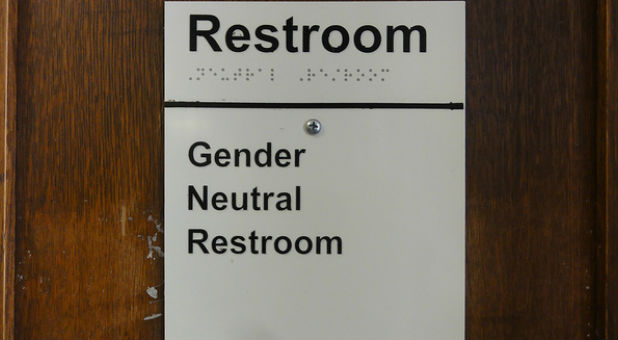NYC Mayor Demands All Government Restrooms Open to Gender Choice
New York will now allow a person of any gender to choose whether to use a men’s or women’s bathroom or locker room in all municipal properties, acceding to the demands of transgender advocates.
Mayor Bill de Blasio signed an executive order on Monday that applies to city agency offices, public parks, pools, playgrounds, some museums and recreation centers.
“Today’s order makes it clear that New York City fully supports the right of every New Yorker to use the single-sex facility consistent with their gender identity,” de Blasio said in a statement, describing New York as the birthplace of the fight for lesbian, gay, bisexual, and transgender rights.
“Every New Yorker should feel safe and welcome in our city—and this starts with our city buildings,” said the mayor. He called access to bathrooms and other single-sex facilities based on gender identity “a fundamental human right.”
The order requires city agencies to post the policy in conspicuous locations within three months and train all employees within two years.
New York City, home to approximately 25,000 transgender and gender non-conforming individuals, is not the first U.S. municipality to take such a step.
In North Carolina last month, the Charlotte City Council passed similar legislation. But North Carolina legislative leaders say they plan to block the law from taking effect.
New York City’s move comes a week after South Dakota Governor Dennis Daugaard vetoed a bill that would have made the state the first to limit transgender students to using a bathroom or locker room that corresponds with their birth gender.
Houston voters in November overwhelmingly rejected a measure known as the “bathroom ordinance” that would have established nondiscrimination protections for gay and transgender people.
New York City became known as birthplace of the modern gay rights movement as the result of an uprising in 1969 at the Stonewall Inn, a Greenwhich Village tavern that catered to a wide array of gay patrons. Police raided the inn, looking for liquor violations, and met with unexpectedly strong resistance that became a nearly weeklong series of sometimes violent demonstrations against police harassment and was later known as a pivotal moment of the gay-rights movement. {eoa}
© 2016 Thomson Reuters. All rights reserved.














































